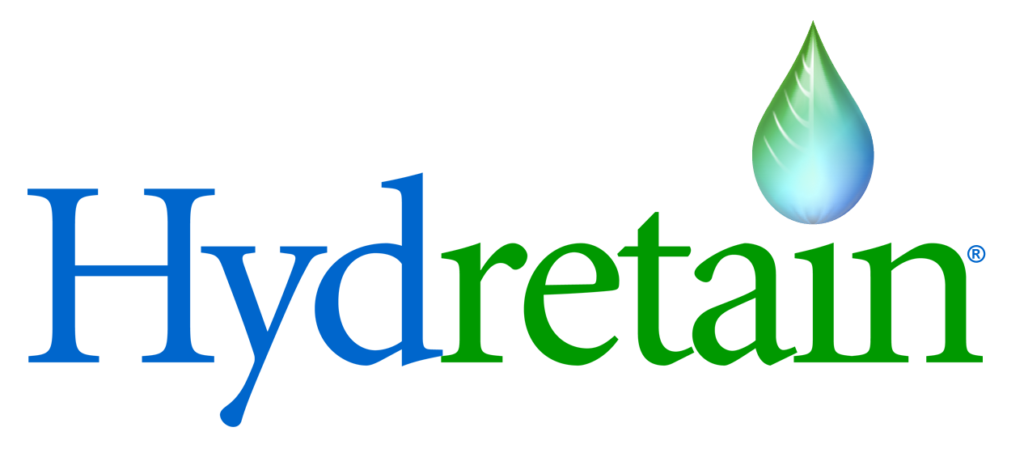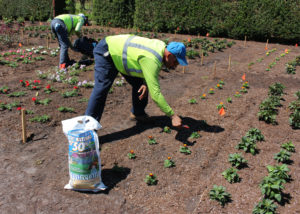Trees are one of the most important aspects of our landscapes. In addition to supplying oxygen, tree canopies provide shade that cools homes and other buildings. This cooling effect reduces energy use and utility costs. Additionally, well maintained trees add curb appeal that increases property value. As high value assets, it is much more economical to maintain healthy trees than to remove and replace them. Protecting trees from drought stress is a key factor in maintaining long term health.
The Importance of Water Management
Along with proper nutrition, water is vital to tree health. Just like us, trees need a consistent supply of moisture to maintain internal processes. When water is limited, trees begin to experience drought stress (aka moisture stress). Additionally, water plays a key role in the uptake of nutrients. When soils are dry, many nutrients become unavailable to tree roots, further exacerbating nutrient deficiencies.
Severe drought can have a lingering effect on the health of your trees. During these periods of extreme stress, trees often lose their fine feeder roots. These tiny roots are responsible for most of the tree’s water and nutrient uptake. Once damaged, your trees will continue to stress until feeder roots are fully regrown.
How Hydretain® Can Help
Hydretain is a unique soil moisture management solution used to reduce plant watering requirements and protect plants from the damaging effects of drought stress. As soils dry, moisture is lost to evaporation. Hydretain contains compounds that naturally attract water molecules. Once applied, the product condenses subsurface moisture vapor, the gas form of water, back into plant usable water droplets. This unique process reduces evaporative loss and provides plant root with moisture for longer periods between irrigation cycles or rainfall.
By helping to maintain optimal soil moisture for extended periods, Hydretain will protect your trees from drought stress and improve nutrient uptake – making it the perfect complement to your fertility program.
Application Rates & Methods
Hydretain is available in both liquid and granular formulas that provide a wide range of application options to protect trees from drought stress.
Granular: Apply 1.5-2 lbs. per inch of trunk diameter at breast height (DBH). Granular products must be watered into the root zone to be effective. Watering should be done within 5 days of the application.
- Broadcast: Apply evenly from the base of the tree to just past the drip line.
- Incorporate: Add granular Hydretain throughout the backfill soil when planting new trees and shrubs.
Liquid: Apply 4-8 fl. oz of Hydretain per inch DBH. Hydretain should be diluted prior to application. Dilution rate is variable from 50:1 to 300:1.
- Spray Application: Apply evenly from the base of the tree to just past the drip line. Water into the root zone immediately following the application.
- Soil Injection: Begin injections 1-3 feet out from the trunk to avoid injury to large roots and work in a grid pattern away from the tree to within 2 feet of the drip line
- Drench: Dilute Hydretain at a rate of 2 oz per gallon of water and saturate the root ball prior to planting or use diluted material as a post installation drench solution.
- Drip Irrigation: Add the proper amount of Hydretain based on number of trees and tree size(s) into drip irrigation via fertigation injector.
- Tree Watering Bag & Watering Mats: When using watering bags such as Treegator®, Hydretain can be added directly into the bag. For use with watering mats that contain superabsorbent polymer such as TreeDiaper®, Hydretain should be drenched into the soil underneath the bag.
Combination Products & Tree Care Programs
NutriRoot® is a combination tree care product that blends Hydretain with nutrients, seaweed extract, humic acid, and surfactants. It is designed to accelerate root development and to reduce water stress in new plantings, mature trees, shrubs.
For a robust fertilization, soil enhancement and water management program for tree care, check out Arbor Rx™.
For more information or questions on Hydretain, please contact our Agronomic experts.


